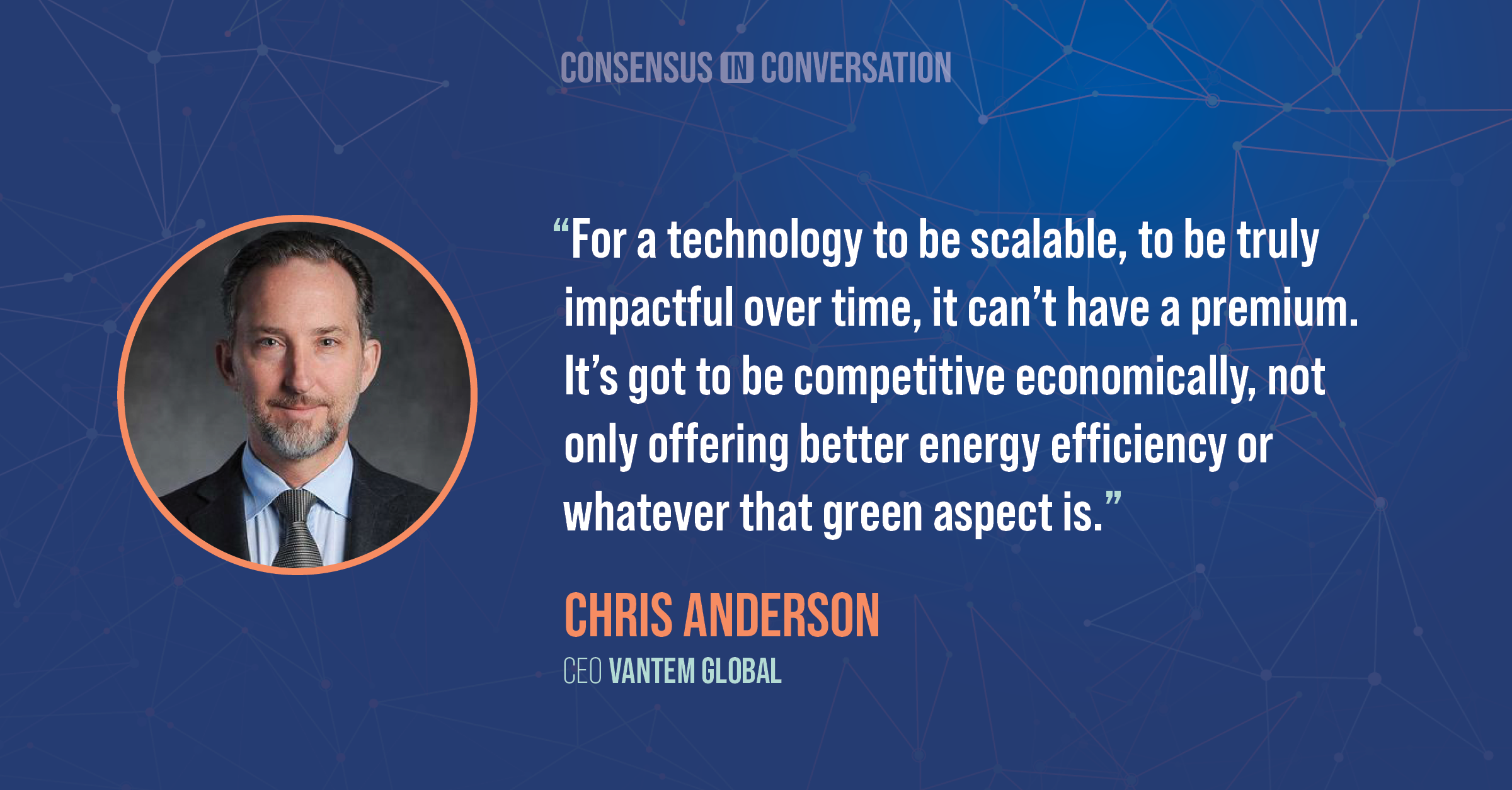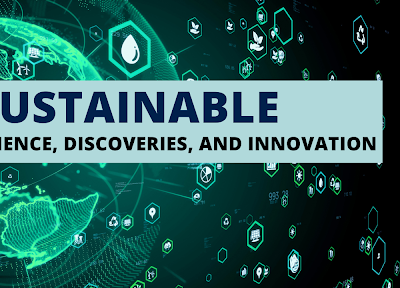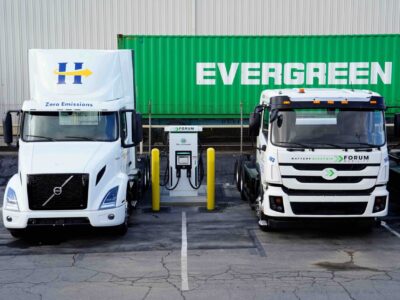When walking down the street, it is easy to take the ground we walk on – cement and asphalt – for granted. But, these are economic monsters in an industry worth over $300 billion. Sometimes, the industries poised to generate the greatest returns – financially and socially – are so ubiquitous that we overlook them. Without the roof over our heads, pavement on our roads, and concrete in our buildings, life as we know it would be very different. While we encounter these invisible guarantors of modern civilization daily, most of us do not realize that a few unsung innovators are working tirelessly to ensure that future generations can enjoy the benefits of these mundane but essential products. And while companies like Vantem Global may not be flashy, their groundbreaking sustainable techniques are critical to improving the quality of daily-use products and the decarbonization of our society.
On a recent episode of my podcast, Consensus in Conversation (CiC), I spoke with Vantem about the critical home manufacturing sector and how the interests of the business community, customer, and planet are more aligned than one would think. As a part of the built environment, the massive housing construction industry contributes 40% of yearly carbon emissions. Chris Anderson, the founder and CEO of Vantem Global, is rectifying this issue by redesigning the foundations of residential production to reduce its carbon footprint drastically. Rather than shipping a collection of smaller component parts to a construction site, Vantem quickly manufactures homes in a factory before sending an almost fully completed dwelling to its corresponding piece of real estate. The crucial invention that makes this production strategy possible is a large panel (about 4 ft x 12 ft). This component streamlines home manufacturing because it is all that is needed to build the floors, walls, and roof. As the panels are fully insulated, they allow Vantem houses to be 70% more energy efficient than the average dwelling, saving homeowners money on their utility bills while reducing greenhouse gas (GHG) emissions. This great innovation also allows Vantem to construct homes 50% faster than traditional methods at 20% of the cost. These factors help the company mass produce an affordable product, and, in this case, more customers directly translates into greater profits and the increased pace of carbon reduction.
Here are a few key lessons from Chris’ story that have continued to resonate long after we finished our conversation:
1. The Best Way to Protect Our Natural Ecosystems is to Identify Quantifiable Value. Before Vantem, Chris founded Forest World, a company that manufactured high-quality items using Bolivian timber. His idea was drastically different from Bolivia’s traditional trade strategy, which was to export wood at an extremely cheap price that required extensive deforestation to achieve profitability. This created the illusion that the natural ecosystem was of a low monetary worth. However, by creating more valuable items like furniture through responsible timber harvesting, Chris illustrated that the rainforest was far more precious than previously thought. As inventions like CiC veteran Michael Blaugrund’s natural asset classification did not exist then, the forest’s inherent decarbonization benefits were harder to quantify. Hence, Chris’ strategy was a brilliant first step in the right direction.
2. Affordability Unlocks a Product’s Greatest Positive Environmental Impact. To make the radical and societal changes necessary to save the planet, sustainability cannot merely be marketed to the elite at exorbitant prices. Everyone must benefit from these green innovations for a real solution to be reached. Chris’ modular homes and their affordability allow a more significant proportion of the total addressable market (TAM) access to energy-efficient living. As citizens from all socioeconomic backgrounds can now reduce the CO2 emissions of their homes, Vantem’s climate mitigation power has a much more significant potential than if the company only targeted a small, wealthy demographic.
3. The Green Premium is an Outdated Concept. Technology has progressed to such a degree that environmentally friendly products can actually be of a higher quality than existing alternatives. Besides helping homeowners save money through increased energy efficiency, Vantem homes are more soundly constructed than regular houses and are adaptable to extreme climatic conditions. For example, their component panels are refractory, meaning they can better resist fire. These materials also negate the need for structural beams, so the dwellings are more likely to withstand earthquake damage. Clearly, the durability of a Vantem home will give it a competitive advantage in places where natural disasters are more prevalent, and this quality is essential in helping us adapt to climate change’s adverse effects.





